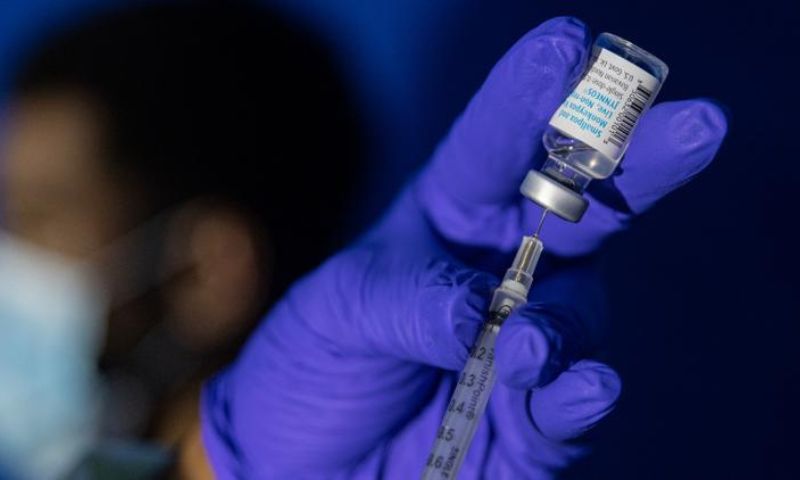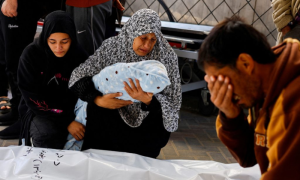COPENHAGEN: Danish drugmaker Bavarian Nordic on Thursday said it was ready to produce up to 10 million doses of its vaccine targeting mpox by 2025 after the World Health Organization (WHO) announced a surge in the virus in Africa a global public health emergency.
The decision to increase production follows alarming reports of escalating mpox cases in the Democratic Republic of Congo (DR Congo) and its spread to neighboring countries. The WHO’s declaration, made on Wednesday, marks the situation as a “public health emergency of international concern.”
Rolf Sass Sorensen, Vice President of Bavarian Nordic, said that the company is equipped to manufacture two million doses in 2024, with the total capacity reaching 10 million doses by 2025. “We need to see the contracts before we commence full-scale production,” Sorensen noted.
Currently, Bavarian Nordic holds around 500,000 doses in stock. The company’s stock experienced a notable increase of nearly eight percent on the Copenhagen Stock Exchange following the WHO’s announcement, building on a 12 percent rise the previous day.
The Africa Centres for Disease Control and Prevention (Africa CDC) reported on Tuesday that over 200,000 doses of the mpox vaccine would be distributed across Africa. This initiative follows an agreement between the European Union (EU) and Bavarian Nordic to address the growing outbreak.
Since January 2022, 38,465 cases of mpox have been reported across 16 African countries, resulting in 1,456 deaths. The incidence of the disease has surged by 160 percent this year compared to the previous year, according to recent data.
The Democratic Republic of Congo has been particularly hard hit, with 548 deaths recorded since the beginning of the year. The DRC’s Health Minister Samuel-Roger Kamba confirmed in a video statement that all provinces in the country have been affected, with the highest impact in South Kivu, North Kivu, and several other regions.
The DRC government has implemented a multi-faceted strategy. This includes increasing awareness about the virus, developing a national vaccination strategy, and enhancing disease surveillance at borders and checkpoints. Additionally, the government has established working groups to improve contact tracing and mobilize resources to manage the epidemic.
The US Department of Health also announced on Wednesday that it would donate 50,000 doses of the FDA-approved JYNNEOS vaccine to the DRC. The US emphasized that vaccination would be a critical component of the response to the outbreak.
Mpox, first discovered in humans in 1970 in what is now the DRC, is caused by a virus transmitted from animals to humans and can also spread through close physical contact between humans. The disease is characterized by fever, muscle aches, and large boil-like skin lesions.
The current outbreak in the DRC is attributed to the clade 1b subclade, which is more severe and has a higher fatality rate than the clade 2b subclade responsible for the global surge observed in 2022. The previous global emergency declared by the WHO in July 2022, which lasted until May 2023, primarily concerned clade 2b and affected approximately 90,000 people with about 140 deaths.























